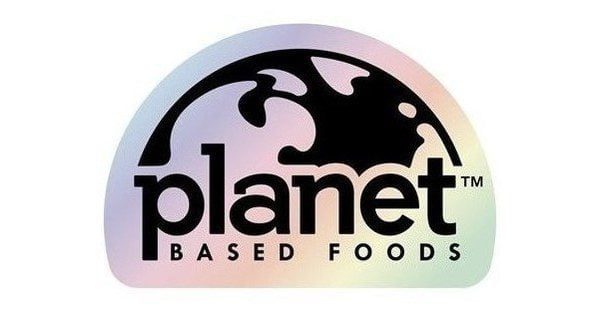Almost ready to hit supermarket shelves, lab-grown meat is about to undergo a dramatic revolution in Britain. According to the Food Standards Agency announcement, there has been a significant surge in applications for lab-grown meat products, evidencing the scale this new food production has achieved. Otherwise known as cultured or cell-cultivated meat, clean meat is a sustainable and ethical alternative to conventional meat that addresses many of the environmental and animal welfare problems associated with traditional livestock farming.
So far, it has received 15 applications, covering everything from steak and beef to chicken and even foie gras, while another 15 applications are due over the next two years. Pretty heady stuff, and indicative, if nothing else, that lab-grown meat is going to become a focal point in the future of food. But what does it mean for consumers, and how will the FSA ensure those products coming to market meet the highest safety standards?
What is Lab-Grown Meat?
Also known as cultured or cell-cultivated meat, it is a type of meat produced by cultivating animal cells in a controlled environment. Such an action eliminates the raising and slaughtering of animals since the meat will be grown directly from the cell. With lab-grown meat, production could be quite different in several key ways from conventional means. The most significant benefits would be environmental ones.

The first positive feature of lab-grown meat is the increased potential for environmental footprint reduction. There is a greater demand exerted on natural resources by traditional farming methods of animal husbandry, which contributes to forests being cut down, waters depleted, and greenhouse gas emissions adding to climate change. Lab-grown meat requires less land, water, and energy. This sustainable way of developing meat fits in with the growing trend among consumers for more ‘green’ food. Ethical Considerations
Lab-grown meat also saves one from ethical issues of animal welfare. The technology rules out slaughter, providing a cruelty-free alternative that might find favor with consumers troubled by the ethical implications of their choices. On the other hand, with increased public awareness about animal welfare, there is, in this case, lab-grown meat a compassionate alternative.
The Role of the Food Standards Agency
FSA will ensure that lab-grown meat products remain safe for human consumption. As mentioned by Professor Robin May, the chief scientific adviser for the FSA, it will be a case of ‘no safety case, no market’ as all lab-grown meat products will require stringent and robust safety assessments. The FSA has successfully secured £1.6m funding from the Government’s Engineering Biology Sandbox Fund (EBSF) to back comprehensive testing to ensure that the lab-grown meat meets all the safety required standards before it goes for human consumption.
Food Safety
From its research, the FSA is going to investigate the safety of lab-grown meat products and their production technology. The FSA aspires to study in detail and, through evidence-based recommendations, reassure the public that lab-grown meat will not only be safe but also nutritional. This commitment to safety shows that the agency is dedicated to nothing but high standards for food while embracing innovation.
A Framework for Innovation
But while the technology to produce lab meat has been evolving, so too have FSA’s efforts to establish a regulatory framework balancing safety with innovation. This will mean detailed guidance for companies on producing and testing their products to meet the rigorous standards set by consumer health. In building an enabling environment of innovation, the FSA is putting the UK at the front line of this industry.
The Road to Consumer Acceptance
While lab meat has a host of benefits behind it, its success nevertheless depends on consumer reception. As with any other new technology, many questions have arisen about how it will reach the general public. It’s crystal clear that research by the FSA and, especially, clear dissemination of information will play a vital role in the success of such addresses aimed at earning confidence from consumers.

Consumer Concerns
Also, the FSA is seeking to provide clearer information on what this lab-grown meat is, how it is produced, and its possible benefits. Educating consumers about the environmental and ethical advantages, alongside the safety of lab-grown meat will be important in helping them see this new source of food as a positive addition to the market.
Nutrition and Taste
Some of the issues consumers are concerned about involve the taste and ability to take in nutritional values from traditional meat, which is grown in the lab. Fortunately, food technology has improved to create lab-grown meat that may be fully flavored or just as nutritional as conventional meat. Good quality cells plus optimizing processes for their production allow lab-grown meat producers to create products that meet their consumer’s expectations regarding taste and health.
Economic Consequences on the Meat Industry
With the rise of lab-grown meat, there can be some potential economic effects for those producing meat the traditional way. When lab-grown meat is more available, it might cause disruptions in the traditional meat industry, which presents challenges and opportunities for farmers and producers alike.
New Opportunities for the Traditional Farmer
Lab-grown meat will only decrease the demand for traditionally raised livestock but might be a business avenue for traditional farmers to transition into a new kind. Some can even take on a new role: supplying cells to the lab-grown meat producers. That way, they too can benefit from this new industry. Instead of fully replacing traditional farming, lab-grown meat can supplement it as a sustainable alternative to lower the environmental impact of livestock production.
Supporting a Sustainable Transition
This transition could also be assisted by the FSA and other interested parties to ease traditional farmers into the change. Farmers would have to be trained and equipped to meet up with the new dimension of food production. This should be a collective activity for immersion into a laboratory-grown meat world that will be sustainable and/or inclusive.

The Future of Lab-Grown Meat in the UK
Lab-grown meat might just find its place on regular UK food market shelves much sooner than one might think, while the FSA continues its research and regulatory work. Its commitment to safety, innovation, and consumer education will be crucial in the development of this industry. With such an attitude, the UK can be at the forefront with regard to sustainable food production and serve as an example for other countries.
A more sustainable and equitable food system
Lab-grown meat is a decent step toward a more sustainable and moral system of food production. By reducing the environmental footprint associated with meat production, it offers cruelty-free meat-a quality many consumers appreciate. As consumer acceptance continues to grow, supported by progressive technological development, lab-grown meat may well assume a leading role in meeting worldwide protein demand sustainably, for both the planet and animal welfare.
A New Generation in Food Innovation
Work done by the FSA with lab-grown meat shows the importance of innovation to address the challenges affecting our food system. The FSA supports the development of new technologies, thereby helping to pave the way for a future in which food will be produced in a more sustainable, more ethical, and more efficient way. As lab-grown meat becomes a reality, the UK is about to enter a new era of food innovation which could change the way we think about and eat meat.
In sum, lab-grown meat is more than a technological advancement; it represents a paradigm shift in how we produce our food. The support from the FSA and the commitment of companies on the leading edge of this industry mean that lab-grown meat will doubtless soon be part of the UK food landscape. This development alone promises a future where our food choices will not only be based on sustainability and ethics but also on innovation for a resilient, responsible food system that future generations deserve.









